Russian President Vladimir Putin’s future may depend on ‘barbarian’ leader
Russian President Vladimir Putin is clearly in trouble – and his future may hinge on an ambitious governor from a “terrorist” state.
ANALYSIS
Victim. Henchman. Vassal. Saviour?
President Vladimir Putin’s future may hinge on an ambitious governor from a “terrorist” state the Russian president personally suppressed.
The leader of the Russian Federation made a social visit to the Russian Republic of Chechnya last week.
Chechnya’s governor Ramzan Kadyrov crowed with delight: “We have been waiting for you for 13 years. And I know that you have a lot of problems, issues that you manually manage, including our republic”.
So why would such a visit be so vital now, even as Ukrainian forces expand upon their humiliating occupation of more than 1000 square kilometres of sovereign Russian territory?
Kyiv isn’t Moscow’s only problem.
The balance of power between Moscow and Grozny – the capital of Chechnya – has suddenly shifted.
President Putin capitalised on his 2009 victory over “terrorist” insurrectionists in Chechnya by using it to paint himself as an invincible genius.
But that image has since been smeared by betrayal, rebellion and defeat.
And the puppet Chechen governor Putin painted as a tamed but ruthless barbarian is now his most potent remaining ally.
When the state-controlled RIA news agency asked if “foot soldier” Kadyrov had earned Putin’s trust, the president replied: “If I had more of these foot soldiers, I would be very happy. But even one such foot soldier is worth a lot”.
Putin is in desperate need of loyal foot soldiers.
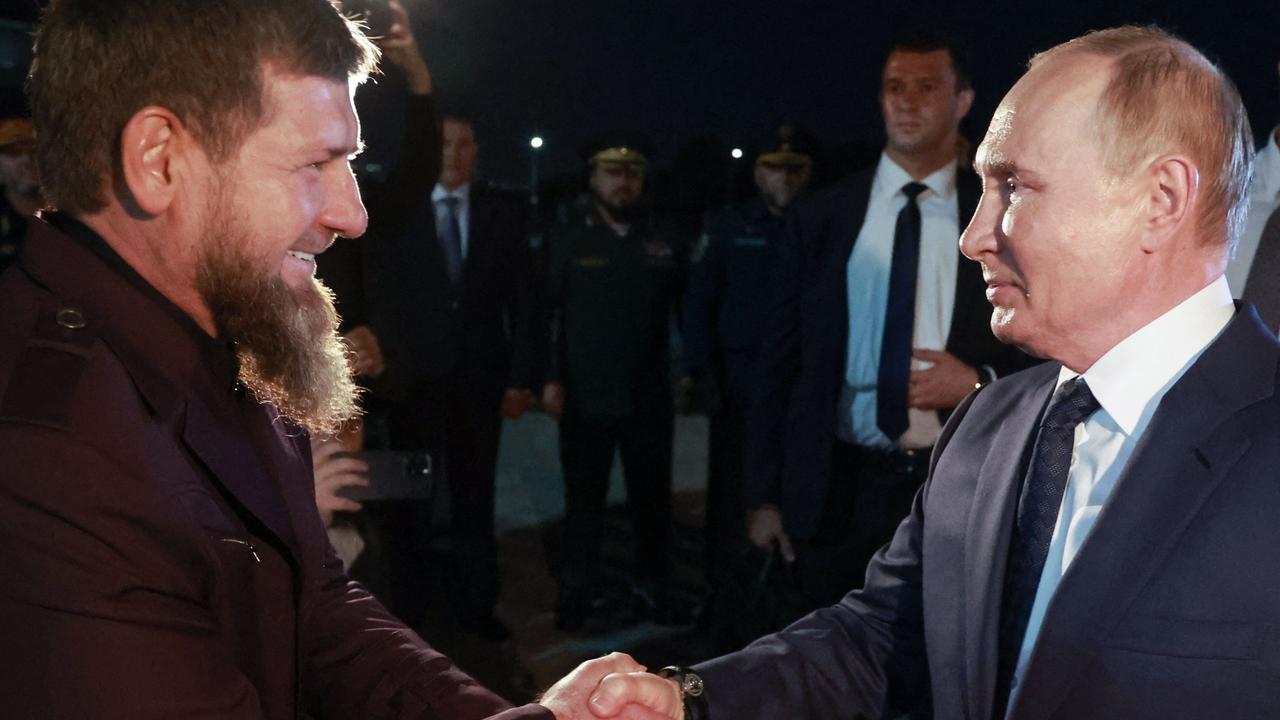
His previous number one fan, Yevgeny Prigozhin, died in a mysterious private jet crash shortly after he led his Wagner mercenaries in a mutiny. Prigozhin had tried to avert accusations of treason by blaming Putin’s trusted inner circle, not Putin himself, for the failure of the Ukrainian campaign.
But he – and his mercenaries – paid a high price for crossing Putin’s will.
Through it all, Kadyrov has remained faithful.
He loudly lauds Putin’s achievements.
He forcefully rebroadcasts Putin’s talking points.
He brutally enforces compliance.
“As long as we have men like you, we are absolutely, absolutely invincible,” Putin told Chechen conscripts parading at a military training facility named after him.
But now Kadyrov’s profile and power are a potential threat to Putin’s Kremlin throne.
“Just as we fought terrorists, today we have to fight those who commit crimes in the Kursk region, in Donbas,” Putin said in a double-edged reference to Ukraine’s invasion and Moscow’s brutal 2006 suppression of “Islamic terrorists” in Chechnya.
“We will punish the criminals. There can be no doubt about this.”
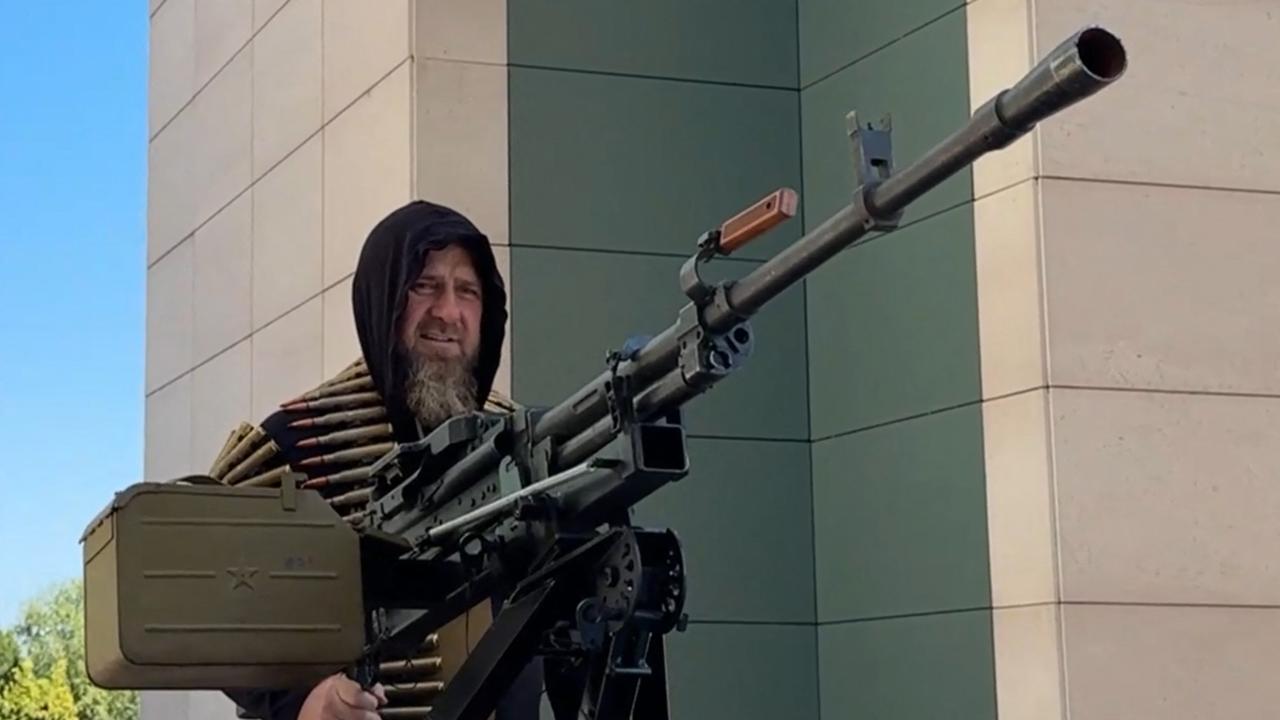
Fighting spirit
Putin’s popularity can, in large part, be attributed to the war he was waging when he first became Russia’s president.
He was essentially “second in command” as Russia’s prime minister under President Boris Yeltsin in 1999. He was assigned personal control over what would become the Second Chechen War.
Chechnya wanted independence. Again.
It had already attempted to separate from the Russian Empire during the 1917 Russian Revolution but once the Bolshevik (Communist) regime had established its grip on power, it seized back control.
In 1944, President Joseph Stalin accused the entire Chechen nation of sympathising with Nazi Germany. He ordered its population forcefully deported – leading to the deaths of up to 200,000 people.
Then, shortly after the Soviet Union collapsed on December 26, 1991, Chechnya declared independence.
Again.
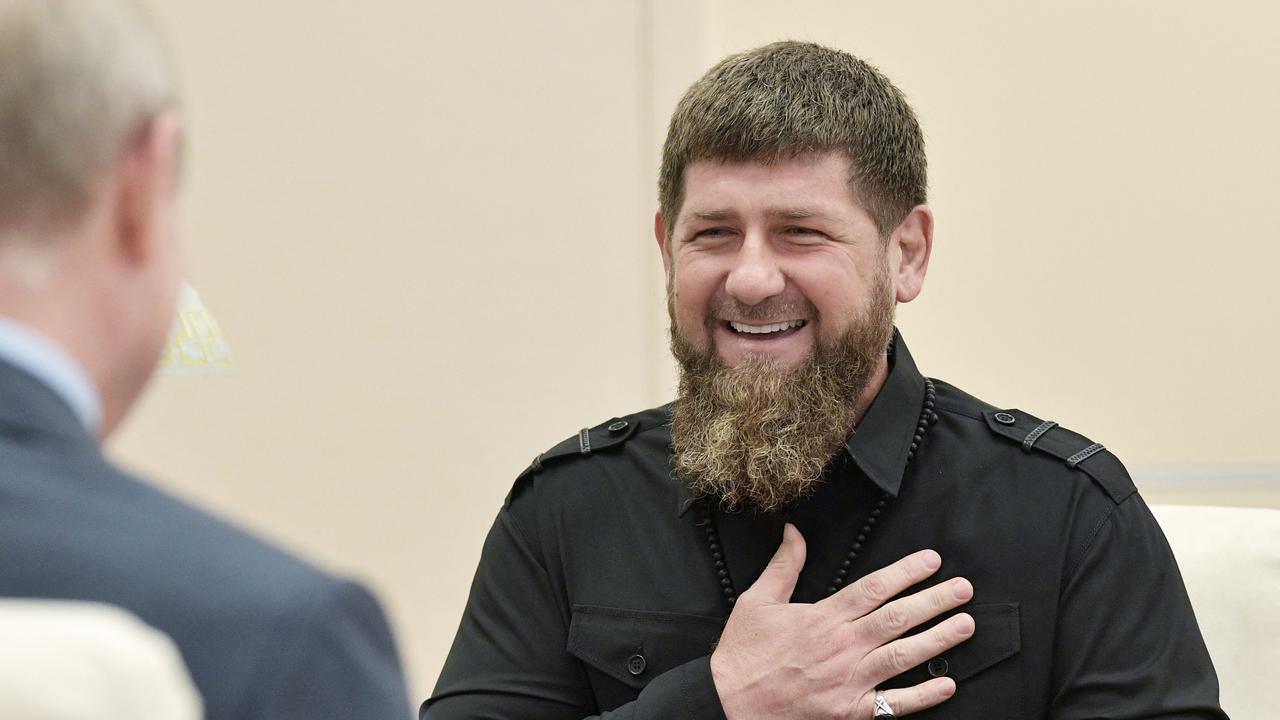
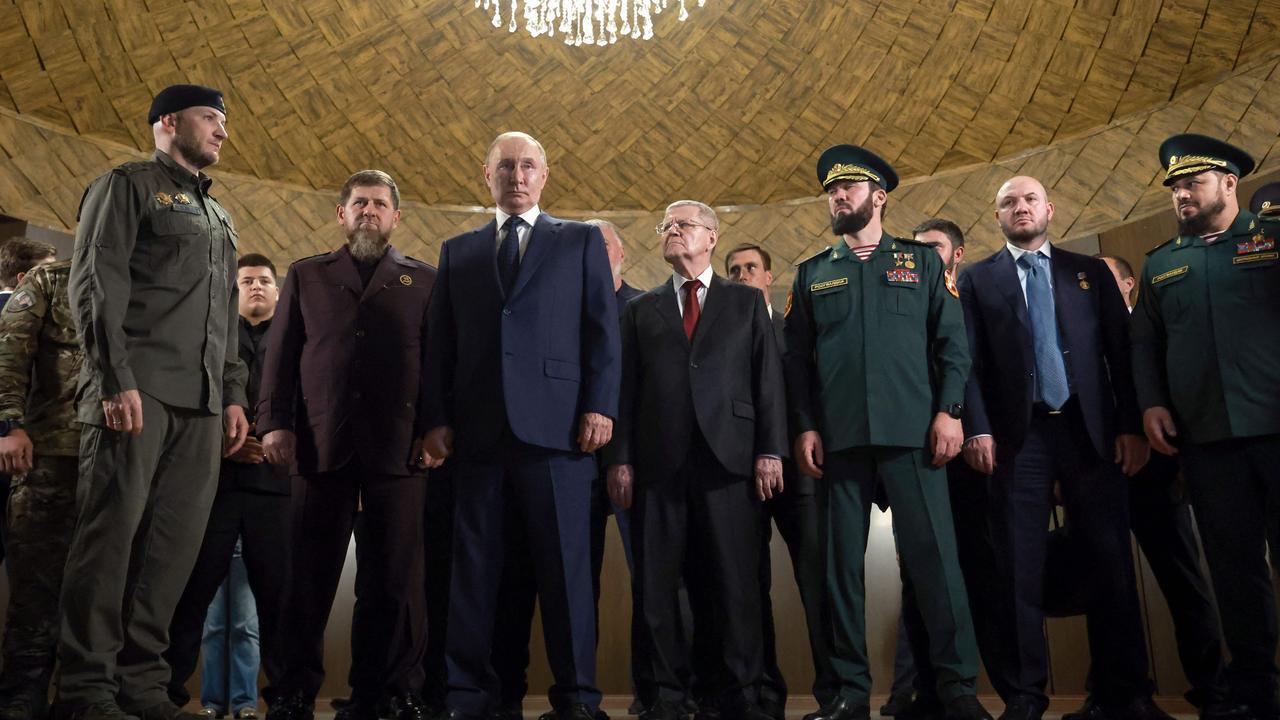
The Russian Federation under Yeltsin attempted to resecure the nation in 1994 by sending tanks into the capital. But he was rewarded with only limited success.
In 1999, Putin used the bombing of a residential block in Moscow as an excuse to finish the job.
He called the invasion by 150,000 Russian troops a “counterterrorist operation”. Then US President Bill Clinton accepted this argument, likening Putin to “Abraham Lincoln” in his fight against the 1861 Confederate revolution.
The September 11, 2001 attacks on the Twin Towers of New York and Washington DC’s Pentagon only cemented Putin’s argument that his brutal tactics against “Islamic terrorists” among the civilian population were warranted.
It took 10 years and 100,000 deaths, but Putin’s eventual success allowed him to paint himself as a political strongman. Resolute. Righteous. Victorious.
It worked.
And during the fighting in 2000, Putin (now president) personally appointed a new “puppet” governor for Chechnya – Akhmad Kadyrov. But he was assassinated just four years later.
Kadyrov’s 30-year-old son, Ramzan, was anointed to take his place.
On Wednesday, Putin kicked off his tour by laying flowers at Akhmad’s grave.
It was a move full of symbolism and implication.
But so was Putin’s visit to the city of Beslan in North Ossetia a day earlier. This was the site of a 2004 massacre of 330 schoolchildren and staff by “Islamic terrorists”.
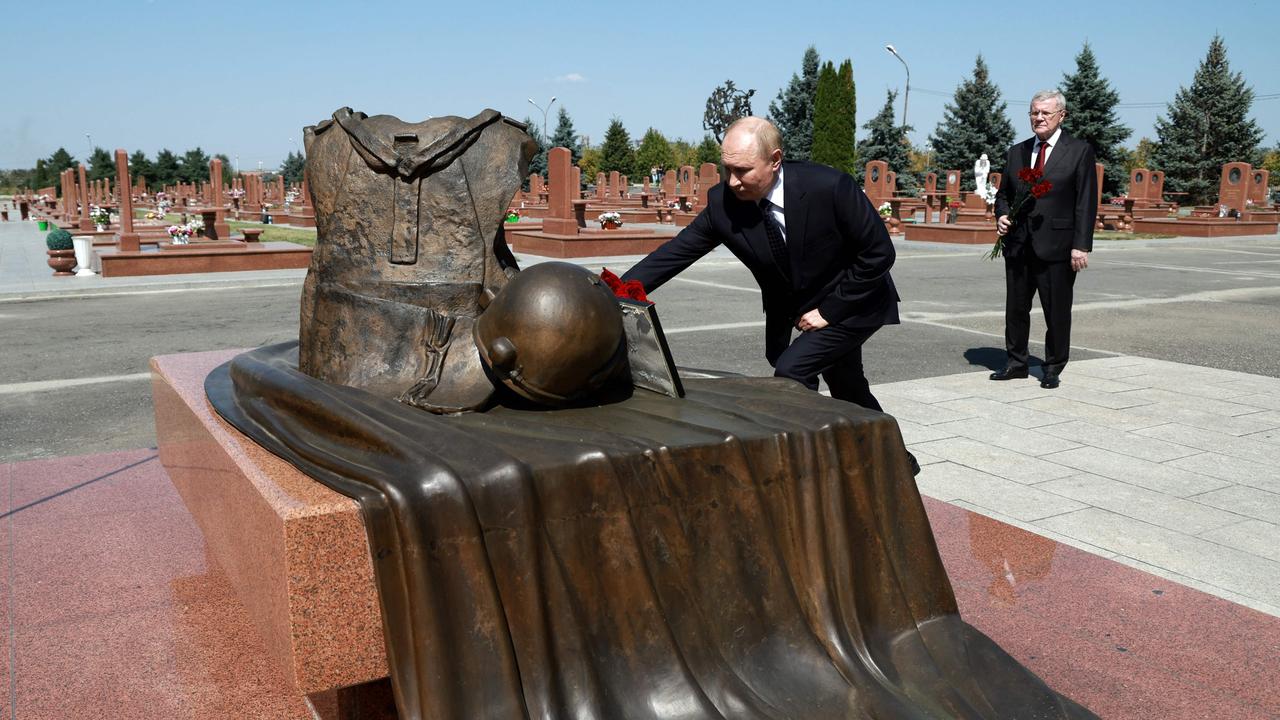
Ramzan Kadyrov: More Putin than Putin
At the weekend, Kadyrov posted a video of himself sitting behind the wheel of a Tesla Cybertruck. It had a heavy machine gun attached.
“Elon, thank you! Come to Grozny, I will receive you as my most dear guest!” he taunted on his personal Telegram social media channel.
“I was happy to test the new technology and personally saw that it is not by chance that it is called the ‘Cyberbeast’. A real invulnerable and fast animal.”
Tesla’s controversial owner, Elon Musk, attempted to deflect the connotations: “Are you seriously so ret*rded that you think I donated a Cybertruck to a Russian general?” the Putin sympathiser posted to his personal social media service X.
But Kadyrov insists the Cybertruck will next be seen fighting on the battlefields of Ukraine.
It’s a move consistent with the self-styled “war lord’s” larger-than-life personality.
He openly lives a lavish lifestyle in his impoverished nation.
He proudly displays his personal zoo, which includes a collection of tigers.
He’s a constant, loud, controversial presence on social media.
But, mostly, he wants everyone to know how close – and loyal – a friend he is to Vladimir Putin.
He’s totally dependent on the Russian President’s support.

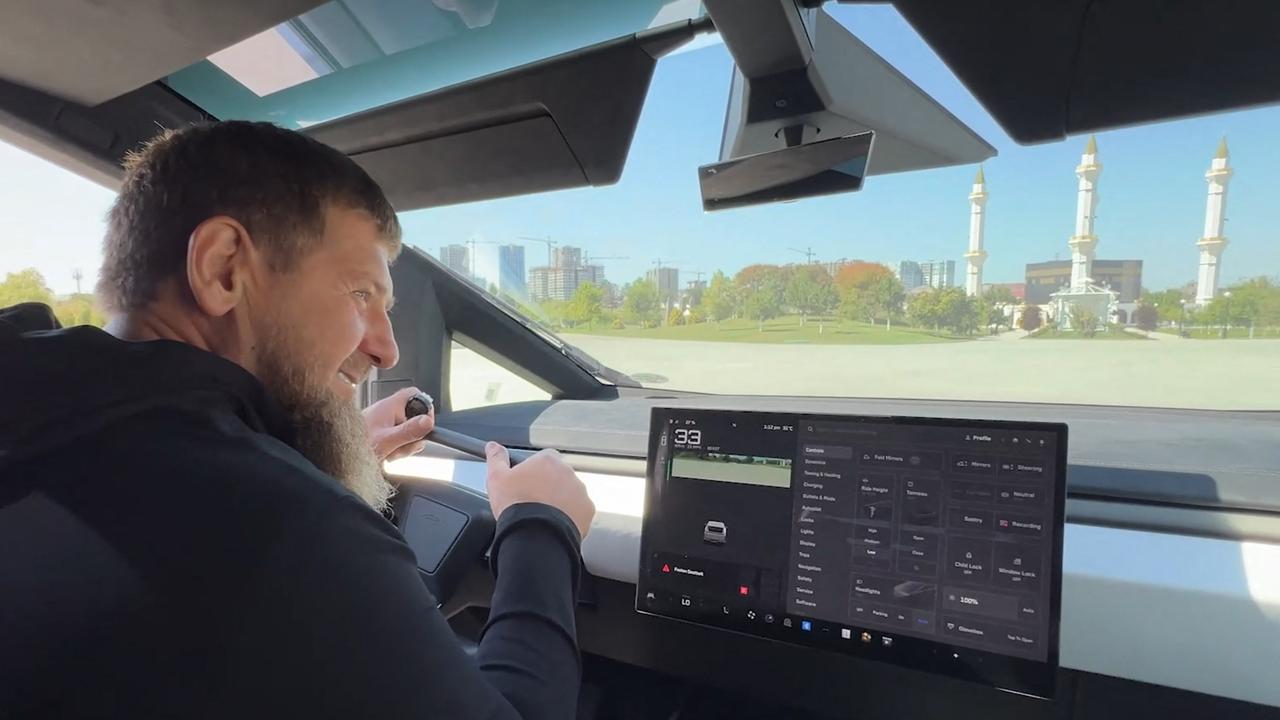
“Given the signs of the local population’s persistent subversive disagreement with the Kadyrovs, Ramzan Kadyrov will most likely have little chance of political survival in the absence of Putin’s financial and military support,” argues University of Basel assistant professor Botakoz Kassymbekova.
Kadyrov is clearly keen to please Putin.
In 2015, the Russian dictator’s highest-profile political opponent Boris Nemtsov was gunned down outside the Kremlin. The men convicted of his killing were closely connected to Kadyrov. But Kadyrov was never investigated.
And, unlike other economic, political and military vassals, he’s been permitted to build a high public profile.
Even in the fighting in Ukraine, where military personnel aren’t allowed mobile phones, “Colonel General” Kadyrov has regularly posted videos and vitriolic comments to his more than three million followers.
“Kadyrov has boasted of Chechen fighters’ prowess in crucial battles, called for the use of tactical nuclear weapons against Ukraine, and recently posted a video of him receiving – with a smirk – an award for holding the world record in most personal sanctions for one person: 15 sanctions,” Kassymbekova writes.
And Kadyrov has seemingly proven his loyalty.
On top of keeping the North Caucasus stable during the 15 years of his rule and enthusiastically embracing the invasion of Ukraine, Kadyrov rushed his personal guard – the Kadyrovtsy – to help protect Moscow from advancing Wagner mutineers.
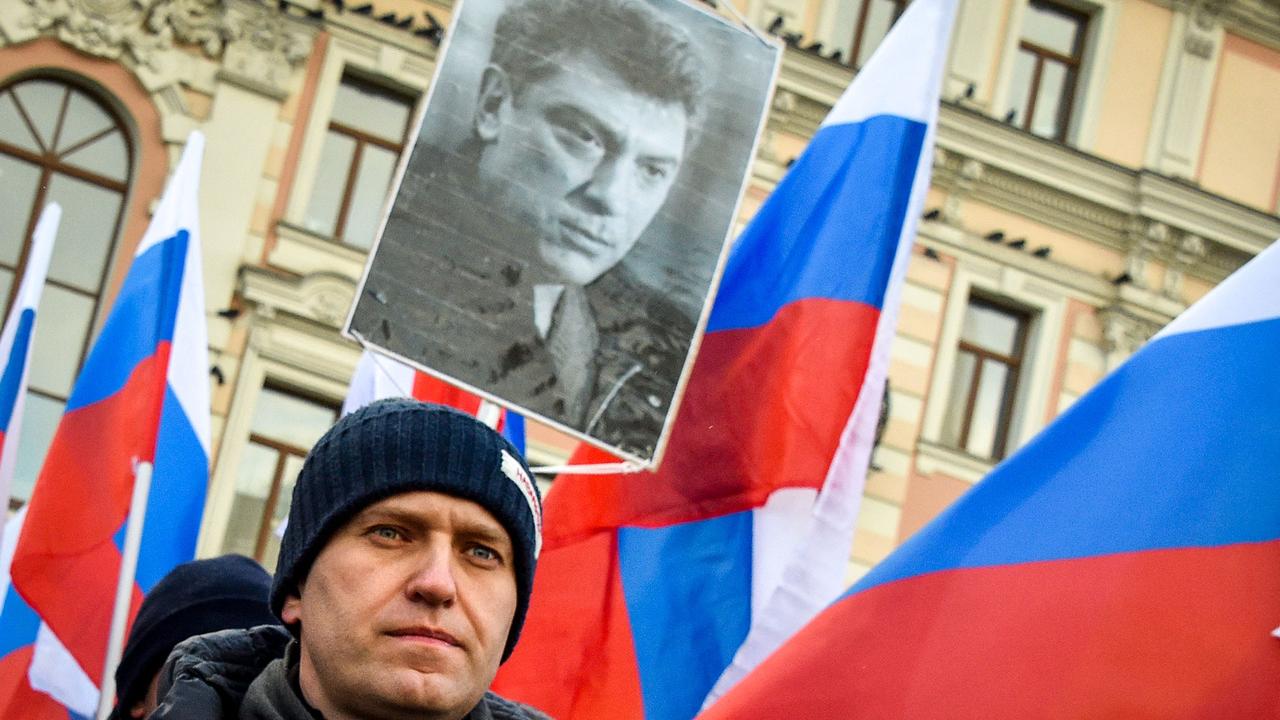
Vlad the Insecure
“The very personal nature of Kadyrov’s relationship with Putin suggests that Kadyrov’s allegiance to the Kremlin is conditional on Putin remaining in power,” Wilson Centre think tank analyst Lucian Kim wrote in 2022.
“Russia’s future could hinge on what Kadyrov will do when his patron is gone.”
Putin’s image as an invincible, infallible authoritarian leader is no more.
His promises of strength, order – and “making Russia great again” have failed.
His kleptocracy – a government of thieves – has left him with an ineffectual military. Its leadership is based on loyalty, not skill. And the corruption that guaranteed his support among Russian oligarchs has left him with a hollow economy unable to deliver the promises of their complicit CEOs.
Now, Putin has failed to defend Russia’s “sacred” borders – let alone restore Peter The Great’s lost empire.
The 71-year-old is keeping a low public profile.
And he’s constantly attempting to downplay the invasion of Russian territory.
Instead, he’s attempted to repaint moves to recapture the Kursk region as a “counterterrorist situation”.
That’s despite the battlefield being renowned as the single largest clash in the history of warfare – the Battle of Kursk between Nazi and Soviet tank forces in 1943.
Kadyrov still needs Putin.
Now, Putin needs Kadyrov.
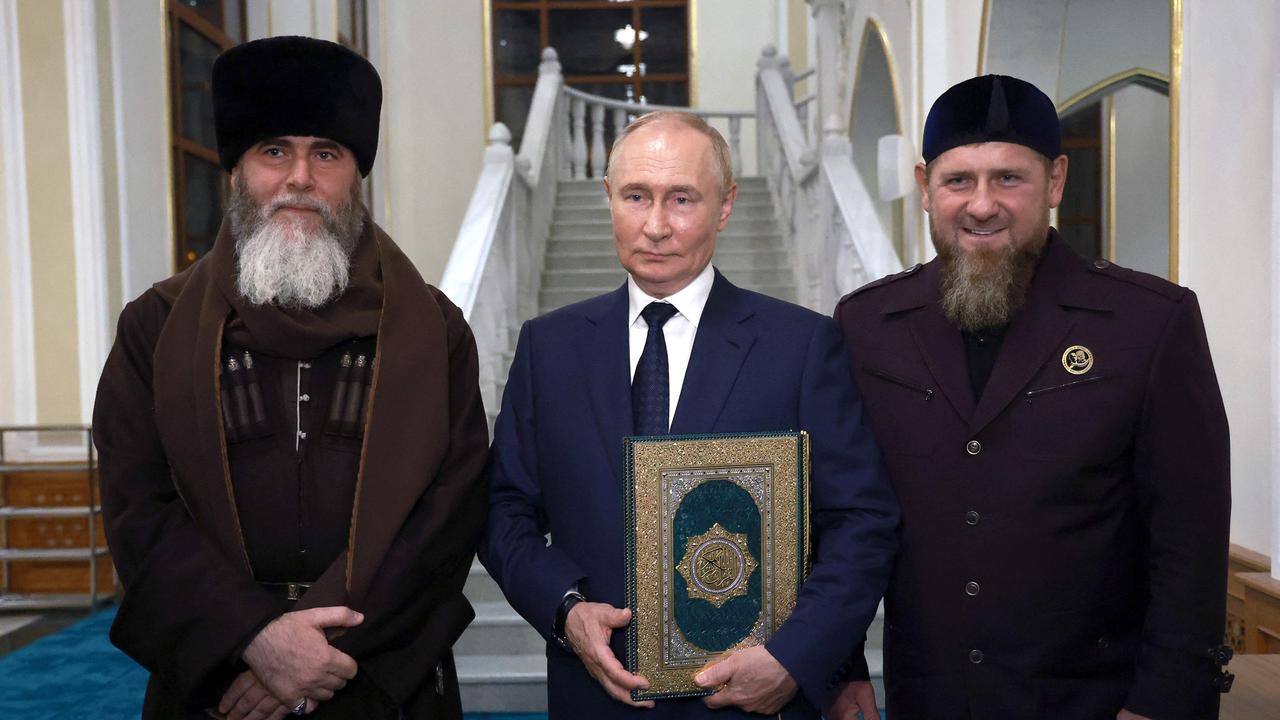
“The more manpower and money Putin expends on the war in Ukraine, the looser his grip on Russia’s far-flung provinces becomes,” Kim argues.
“If Putin’s empire-building project fails, Chechnya – a tiny territory that accounts for one per cent of Russia’s population – could once again become a source of instability for the Russian state.”
But Chechen troops are fighting on both sides in Ukraine.
Fighters loyal to pro-independence leaders rushed to Kyiv at the war’s outset. Now, they proudly proclaim they are the sworn enemies of Kadyrov and his forces.
Despite Putin’s setbacks, Kadyrov remains publicly upbeat.
On Wednesday, he insisted more than 47,000 Chechen troops had passed through the “Vladimir Putin” special training facility since the war began, and that all had been sent to fight Ukraine.
How long can such loyalty last?
“If chaos should break out in the Kremlin, Kadyrov will be the first to declare independence,” Washington DC-based Wilson Centre think tank analyst Zarina Sautieva told Foreign Policy.
More Coverage
“If Putin leaves power, Kadyrov could become a kingmaker — or even a pretender to the throne,” added Nikolai Petrov, a senior research fellow with Chatham House in London.
But how long can Kadyrov last without Putin?
Jamie Seidel is a freelance writer | @JamieSeidel






